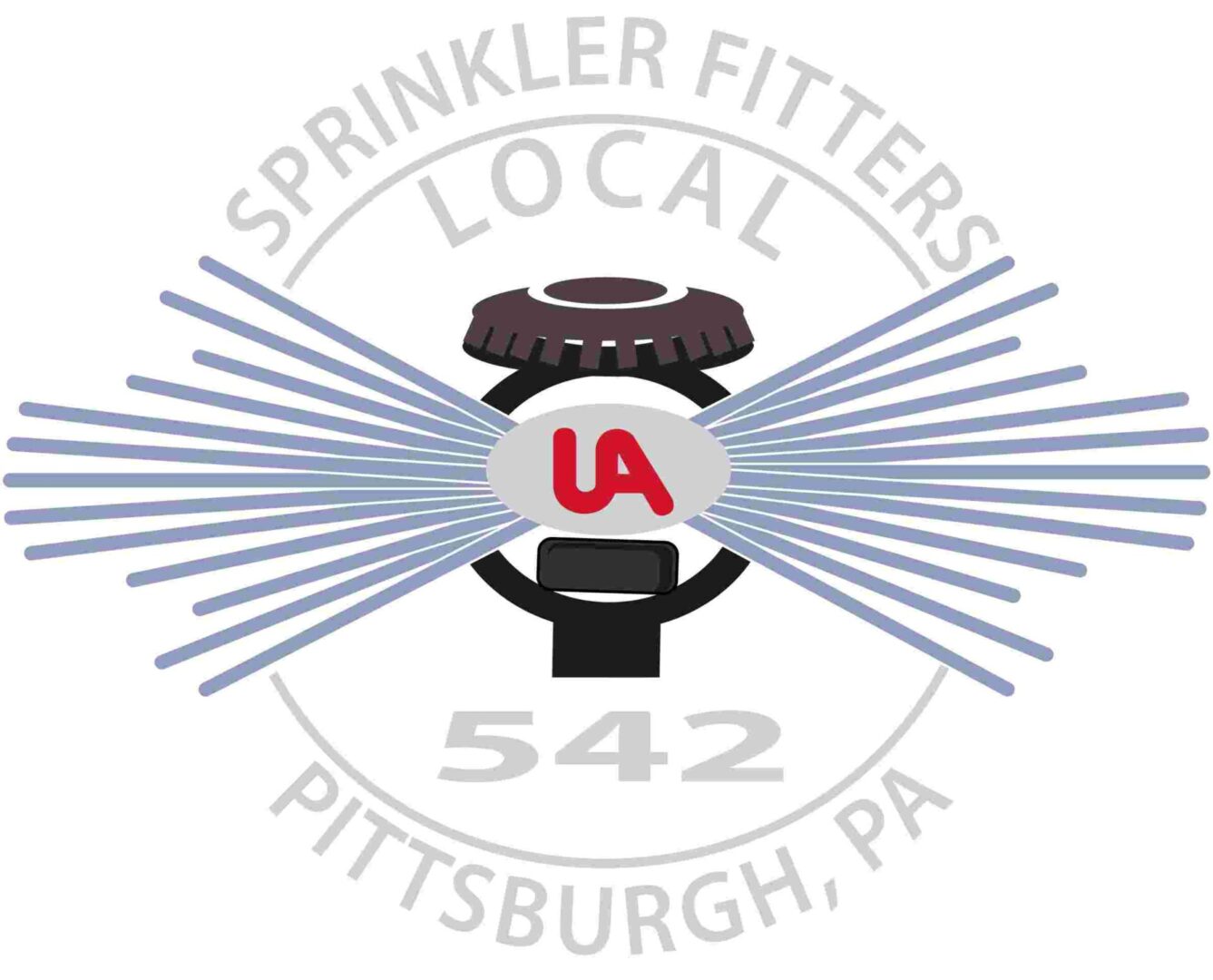Apprenticeship Program
Sprinkler Fitters are pipefitting specialists in fire protection. They install, repair, and maintain all types of fixed extinguishing systems. While most of this work deals directly with automatic sprinkler systems they also have the skills necessary to install and service a wide variety of other fire protection equipment such as standpipes, carbon dioxide systems, special agent systems, foam systems, and dry chemical systems.
If you should become a member of the Local 542 Joint Apprenticeship Program the facts of life are that you:
Are under the jurisdiction and control of the Local 542 Joint Apprenticeship and Training Committee and assigned to a contractor for training.
Must complete a 5-Year apprenticeship in the related training program.
Must preform satisfactorily both on the job and in the Related Training Program. Unsatisfactory progress in either area can result in termination of your apprenticeship.
Must travel to the job location.
Are required to work both inside and outdoors. The job can vary from working in a trench 8 feet below the grade level to working 100 feet or higher above the floor. The majority of the work is done 10 to 20 feet off the floor.
Will work with overhead piping normally ranging in size from 1 inch to 8 inches and with underground pipe normally between 4 inches and 16 inches in size.
Will receive a starting wage as established by Agreement between Local 542 and the National Fire Sprinkler Association, Inc. Those preforming satisfactorily will receive an increase based on a percentage of the Journeyman's rate each period.
Will become eligible for Health and Welfare benefits for yourself and your immediate family on the first day of the calendar month following your completion of 600 hours work on the job. Your employer will also make contributions into a fund to cover the cost of your education and, upon completion of Grade 2 Apprenticeship, will begin payments on your pension.

Career as a UA Sprinkler Fitter
Job Description
Sprinkler Fitters fabricate piping, copper tubing, plastic and protective steel tubing for thermal sensing lines. They install and trim related devices to fire protection and fire suppression-type systems. A few examples of the systems that Sprinkler Fitters specialize in are: wet pipe, dry, deluge water spray, dry chemical, foam and halon. These systems are often found in offices, warehouses, shopping malls, manufacturing and high-rise buildings. Computer rooms, kitchens, chemical plants, transformers, oil tanks, etc... require special systems.
The Sprinkler Fitter works from all types of blue prints as well as from sprinkler plans, and incorporates builders transits from underground piping as well as inside sprinkler drops. Sprinkler Fitters are adept in repairs, service and inspections of all types of protection. They perform welding, brazing, soldering and all types of cutting and pipe preparations.
Tools used by Sprinkler Fitters include wrenches, hammers, chisels, pipecutters, groovers, prep machines, hole drilling (pipe), core drills, threading machines, power tools, torches, carborundum saws, drills and welding machines.
Working Conditions
Work is done indoors and outdoors. It is dirty and noisy and the worker is exposed to the heat and cold. Work is active and strenuous with prolonged standing, much walking, reaching and lifting, and occasionally working in cramped or uncomfortable positions, and at extreme heights.
Possible injuries include cuts, burns from heating pipes, soldering or welding equipment, strain from lifting heavy pipes and fixtures, or injuries from falls.
Recommended High School Courses
General math, algebra, geometry, general science, mechanical drawing.
Interest and Temperament
Sprinkler Fitters should understand detailed written or verbal instructions, have the ability to plan ahead and visualize completed projects, enjoy working with their hands, be able to work well with others and accept work under adverse conditions. They must be able to solve mathematical equations quickly and accurately.
Terms of Apprenticeship
- 5 years on-the-job training
- related classroom instruction several nights a week
Admission Requirements of the JAC
- personal interview by the JAC
Training Center
No other organization serves the training needs of the piping industry like the United Association. For over a century, the UA has been training the most highly-qualified workers in the United States and Canada.
Over the past several decades, the United Association's training programs have produced a stable, skilled workforce responsible for building and maintaining piping systems in various industrial and residential facilities that make up the North American landscape.
No one can match the commitment or investment. The UA spends over $100 million annually on training programs efforts involving approximately 100,000 journeymen and apprentices in over 400 local training facilities at any given time.
In addition to our five-year apprenticeship programs, Sprinkler Fitters Local 542 offers continuing education classes that includes journeymen training and certification.
When the five-year apprenticeship is completed, our training does not end. Journeymen Sprinkler Fitters attend upgrade classes on their own time. This training includes advanced training in fire safety, backflow prevention, fire pump-valve training, basic first aid, CPR/AED training and OSHA 500.
Local 542 also works closely with the Pittsburgh Fire Department and its inspection department along with the surrounding suburban Fire Departments to better equip and educate them on the latest fire suppression technologies.


